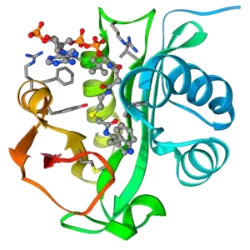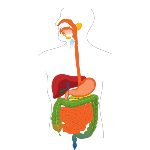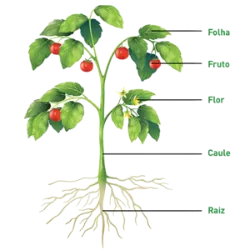Coenzymes and Cofactors

In enzymology, coenzymes and cofactors play essential roles in the functioning of enzymes, substances that accelerate biochemical reactions in the body. Cofactors are molecules or ions necessary for enzymatic activity, and can be inorganic, such as metals (iron, zinc, magnesium), or organic, known as coenzymes.
Coenzymes are organic compounds that bind to enzymes and facilitate the conversion of substrates into products. They act as carriers of chemical groups or electrons during reactions. A classic example of a coenzyme is NAD+ (nicotinamide adenine dinucleotide), which participates in the transport of electrons in oxidation-reduction reactions.
Inorganic cofactors, such as metal cations (Zn²+, Fe²+, Mg²+), help to stabilize the enzyme structure or in the formation of the enzyme-substrate complex. They are indispensable for the catalytic function in many metabolic reactions.
These components are crucial for the efficient catalysis of numerous biochemical reactions, such as those that occur in cellular metabolism. Their absence or deficiency can result in enzymatic failures and lead to various health problems, such as metabolic diseases and nutritional deficiencies.
Did you know?














